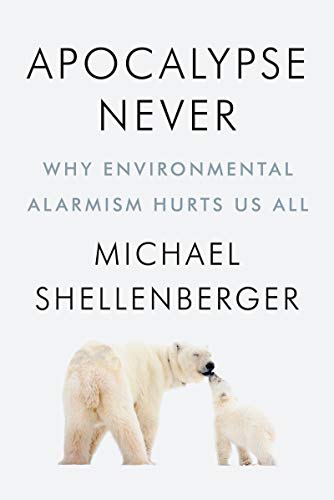Tom Wigley
Climate Scientist
Book Recommendations:
Recommended by Tom Wigley
“Environmental issues are frequently confused by conflicting and often extreme views, with both sides fueled to some degree by ideological biases, ignorance and misconceptions. Michael Shellenberger’s balanced and refreshing book delves deeply into a range of environmental issues and exposes misrepresentations by scientists, one-sided distortions by environmental organizations, and biases driven by financial interests. His conclusions are supported by examples, cogent and convincing arguments, facts and source documentation. Apocalypse Never may well be the most important book on the environment ever written.” (from Amazon)
Now a National Bestseller! Climate change is real but it’s not the end of the world. It is not even our most serious environmental problem. Michael Shellenberger has been fighting for a greener planet for decades. He helped save the world’s last unprotected redwoods. He co-created the predecessor to today’s Green New Deal. And he led a successful effort by climate scientists and activists to keep nuclear plants operating, preventing a spike of emissions. But in 2019, as some claimed “billions of people are going to die,” contributing to rising anxiety, including among adolescents, Shellenberger decided that, as a lifelong environmental activist, leading energy expert, and father of a teenage daughter, he needed to speak out to separate science from fiction. Despite decades of news media attention, many remain ignorant of basic facts. Carbon emissions peaked and have been declining in most developed nations for over a decade. Deaths from extreme weather, even in poor nations, declined 80 percent over the last four decades. And the risk of Earth warming to very high temperatures is increasingly unlikely thanks to slowing population growth and abundant natural gas. Curiously, the people who are the most alarmist about the problems also tend to oppose the obvious solutions. What’s really behind the rise of apocalyptic environmentalism? There are powerful financial interests. There are desires for status and power. But most of all there is a desire among supposedly secular people for transcendence. This spiritual impulse can be natural and healthy. But in preaching fear without love, and guilt without redemption, the new religion is failing to satisfy our deepest psychological and existential needs.
